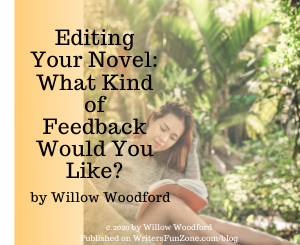Line Editing Your Action Verbs by Sue Brown-Moore
 Please welcome new guest columnist developmental editor and author coach specializing in romantic fiction, Sue Brown-Moore, as she shares about line editing your action verbs.
Please welcome new guest columnist developmental editor and author coach specializing in romantic fiction, Sue Brown-Moore, as she shares about line editing your action verbs.
***
Emotion isn’t conveyed, it is experienced. Compelling prose can sweep readers away, but it starts with clean, simple language.
Use your words strategically, and harness the hidden depths of verbs that speak. Read on for your boost of line editing insight.
Are your verbs steeped in emotion?
Check out this excerpt from Bombshell by CD Reiss. Copyright © 2017 CD Reiss. The bombshell in this romance is the secret baby — well, toddler—but the real draw is the excellent story craft of CD Reiss.
 “Daddy?” Nicole’s voice came from the other side of the door. “Are you okay? Really?”
“Daddy?” Nicole’s voice came from the other side of the door. “Are you okay? Really?”
“He’s fine!”
“She’s killing me!”
Cara cracked a smile. It was a gorgeous sight.
“Hey! Don’t kill Daddy!” Nicole wasn’t kidding. Her voice was soaked in terror.
We looked at each other. Right. Death should be off the table. I leaned for the door and swung it open. Nicole trotted in with a little drawing pad in one hand and a pencil in the other. She nearly impaled me with it as she hopped onto my lap and turned to face Cara. From my vantage point I could see her point the pencil at her nanny. I had to imagine her tough little face.
“Don’t. Kill. Daddy.”
“I won’t.” She split the paper off the back of a Band-Aid and stuck it on me. “But if he keeps it up, I might have to hurt him just a little.”
“Okay,” Nicole agreed.
“Okay?” I objected. My dad had always complained there was a female conspiracy in the house, and I started to think he might be right. As if she wanted to confirm the conspiracy, Nicole turned to face me, practically kneeing me in the groin. Even though she was on my lap she waved her fingers at me to get me closer. She whispered in my ear. “I like Miss Cara.”
#1 First Action Verb: Are your verbs steeped in emotion?
Let’s look at the first bolded verb above: Her voice was soaked in terror.
The verb soaked conveys overflow, heavy, dank.
Those are powerful implications that shore up the emotional cast of this statement. This child is not just upset, she’s in a dark place psychologically, and she can’t wring out her fear of loss.
Some alternate, less optimal phrasings might use weaker verbs or rely on adverbs to achieve a similar effect.
For example, the text might instead say:
“Don’t kill Daddy!” she said fearfully.
- Classic telling rather than showing. Don’t tell us she’s afraid, show us.
Her voice was heavy with fear.
- This version isn’t bad, but it lacks the elegance of the original phrasing.
Her voice shook with terror.
- That one’s pretty good, but it doesn’t delve quite as deeply on a psychological level. It also implies a rhythmic change in the dialogue (“voice shook”) that differs from the auditory imagining of a voice “soaked in terror”.
#2 Second Action Verb: How focused are your verbs?
Let’s look at the second bolded verb above:
She split the paper off the back of a Band-Aid and stuck it on me.
If you’ve ever applied a typical Band-Aid brand bandage (“bandaid” going forward) — the design of which is familiar to most American households — you know that in order to apply it, you need to pull open the two backing papers from the center.
The verb split is brilliant here, because it perfectly conveys a specific step required to correctly apply a bandaid. (I mean, honestly, how many have you wasted trying to put one on just right?)
Consider the effect on the sentence and imagery if the author had instead said:
She applied the bandaid.
- Meh and boring. Why settle for mediocrity?
She pulled the paper off the back of a bandaid and stuck it on me.
- This one’s not terrible, but it doesn’t imply any particular skill, and a professional celebrity nanny would most certainly be a pro at this simple application of first aid.
#3: Third Action Verb: Do your simple verbs resonate?
Let’s look at the third bolded verb above:
“Okay?” I objected.
You can practically hear Brad’s voice lilt up at the end of “Okay?”, like he’s mimicking the word but infusing all his indignation and personality behind the question. The phrasing and punctuation of this statement may be simple, but it’s also very effective.
Here are some alternate ways the author could have phrased this text:
“Okay?” I asked.
- The verb “ask” here is redundant since the question mark tells the reader the tone of this dialogue.
“Okay?” Well I definitely objected to that.
- This phrasing removes the redundancy and injects a little character into the text, but it’s wordy and robs the statement of its quick, reactive feel.
Stay Tuned
Stay tuned for more posts from developmental editor and author coach specializing in romantic fiction, Sue Brown-Moore. If you have specific editing questions, comment below. Sue may answer them in a future post.
***
About the book: Bombshell by CD Reiss
 See Sue Brown-Moore’s review at Goodreads | Amazon | GraveTells
See Sue Brown-Moore’s review at Goodreads | Amazon | GraveTells
Bombshell by CD Reiss
Published by Montlake Romance on May 1st 2017
Genres: Contemporary, Romance
Pages: 364
Add it to your To Read shelf: Goodreads
Hollywood bad boy Brad Sinclair always gets his way, whether it’s the role he wants or the bikini-clad model he has to have. But when a bombshell gets dropped in his lap in the form of a dimpled five-year-old from a forgotten relationship, he knows his life is about to change forever.
***
ABOUT THE AUTHOR
 Sue Brown-Moore is a freelance developmental editor specializing in romantic fiction and an author coach and educator on Patreon. She’s a feminist and a champion of romance who believes that every body deserves a happy ending. Join Sue’s mailing list or shout out on social on Instagram, Twitter, and Facebook!
Sue Brown-Moore is a freelance developmental editor specializing in romantic fiction and an author coach and educator on Patreon. She’s a feminist and a champion of romance who believes that every body deserves a happy ending. Join Sue’s mailing list or shout out on social on Instagram, Twitter, and Facebook!






